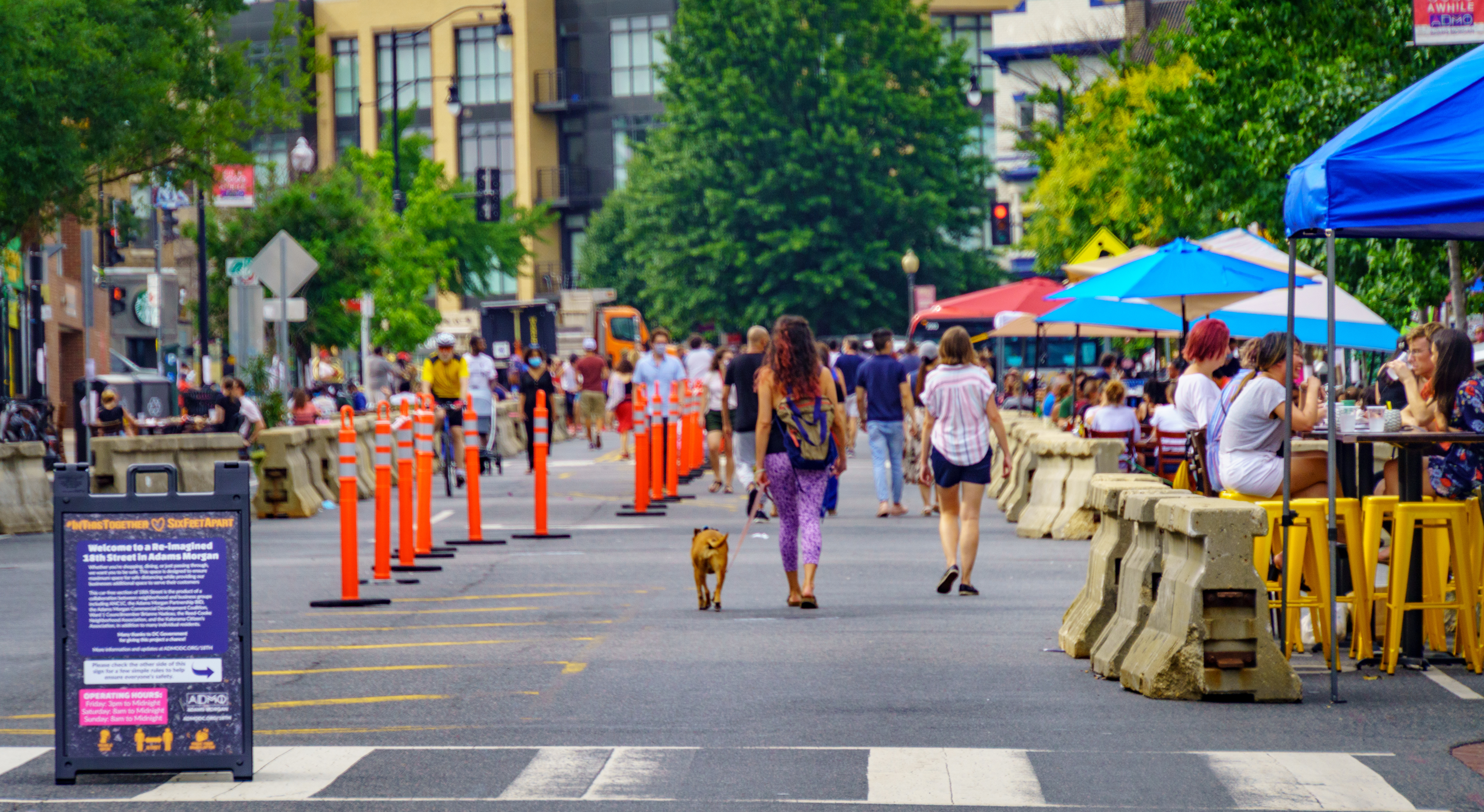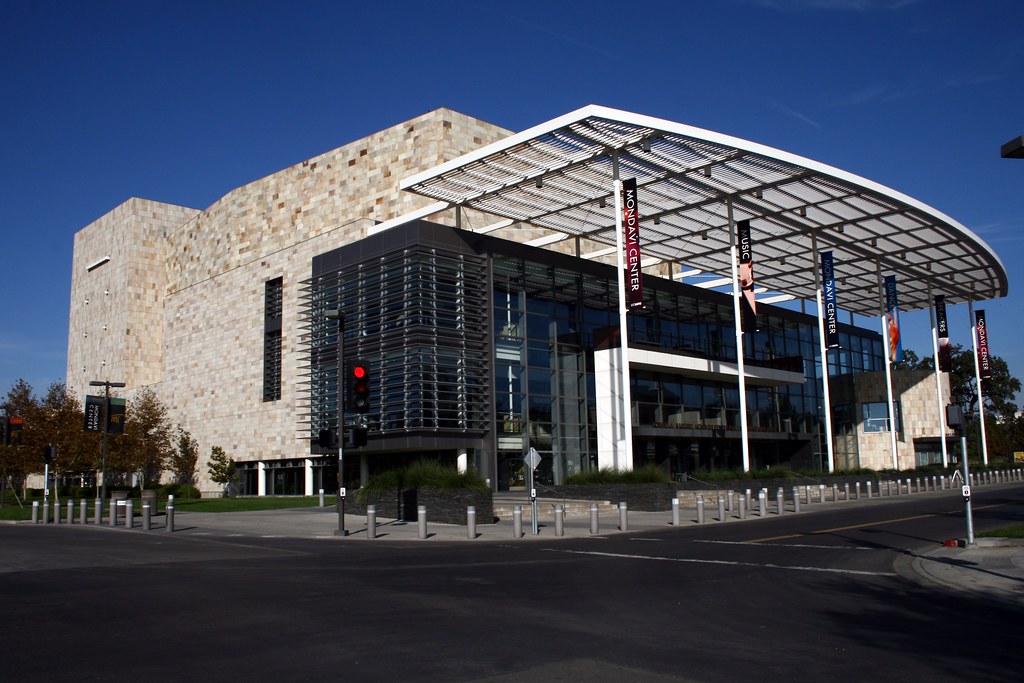The high cost of living in D.C. is widely known — 45% higher than the national average. But it still represents a desirable destination for students and professionals. U.S. Census Bureau data indicates that D.C. has one of the highest migration rates at 44.3%. According to data from George Washington University’s admissions office, the number of applications in 2024 increased by 10% compared to the previous year, reaching 65,230. These data suggest that its appeal is growing. However, the cost of living in Washington, D.C., is challenging for most individuals and families. This reality makes gaining a comprehensive understanding of D.C. living expenses essential. The understanding helps you to effectively manage budgets, maintain financial stability, and ensure a successful and comfortable living experience in this attractive yet expensive city.
What is the Cost of Living in DC?
The average cost of living in D.C. is $6,567 per month. Generally, living costs encompass housing, transportation, utilities, food, groceries, entertainment, health care, and personal expenses.
According to Numbeo, a single person‘s estimated monthly cost of living in Washington, D.C., is $1,424.5 without rent. If renting a one-bedroom apartment in the city center, the total cost of living is around $3900 per month. The Washington, D.C., cost of living for a family of four is around $5,183.6 without rent. If renting a three-bedroom apartment in the city center, the total monthly living expenses should be paid around $10692. According to GW Office of Student Financial Assistance, a first-year student should expect to pay around $2250 monthly.
| Items | Washington DC Cost of Living | National Cost of Living |
|---|---|---|
| Home Price | $1,182,284.00 | $498,033.00 |
| 1-Bedroom Apartment Rent | $2,539.77 | $1,740.34 |
| Meal & Groceries | $724.00 | $624.00 |
| Transportation | $157.00 | $102.00 |
| Healthcare | $160.00 | $137.60 |
| Utility Billing | $322.50 | $335.84 |
| Goods & Service | $1,123.00 | $973.60 |
| Entertainment | $280.00 | $250.00 |
Why is the Cost of Living in DC High on Average?
Housing
Apartments & Houses for sale in Washington DC
Housing represents the largest share of the price of living in Washington, D.C. The cost of houses for sale in this city is 137% higher than the US average. If you plan to live in the area, you should be prepared for this significant D.C. living expense.
| Items | Average Prices |
|---|---|
| Apartment for Sale in City Centre (per Square Feet) | $705.57 |
| Apartment for Sale Outside of Centre (per Square Feet) | $566.57 |
| House for Sale (per Square Feet) | $459.00 |
Average rent in Washington DC
The rental rates for one-bedroom apartments in D.C. exceed the U.S. average by 99%.
| Items | Average Prices |
|---|---|
| Apartment (1 bedroom) in City Centre | $2,539.77 |
| Apartment (1 bedroom) Outside of Centre | $2,067.67 |
| Apartment (3 bedrooms) in City Centre | $5,508.82 |
| Apartment (3 bedrooms) Outside of Centre | $4,151.82 |
Transportation
Regarding the transportation cost of living in Washington D.C., the capital is 54% higher than the national average.
| Items | Average Prices |
|---|---|
| One-way Ticket (Local Transport) | $2.50 |
| Monthly Pass (Regular Price) | $77.50 |
| Taxi Start (Normal Tariff) | $4.00 |
| Taxi 1 mile (Normal Tariff) | $4.00 |
| Gasoline (1 gallon) | $3.51 |
Utilities
Regarding utilities, the cost of living in D.C. is 4% below the national average.
| Items | Average Prices |
|---|---|
| Basic (Electricity, Heating, Cooling, Water, Garbage) | $200.86 |
| Mobile Phone Monthly Plan with Calls and 10GB+ Data | $57.20 |
| Internet (60 Mbps or More, Unlimited Data, Cable/ADSL) | $64.42 |
Meal & Groceries
Daily dining and groceries are essential when calculating living expenses in Washington, D.C. The city’s meal and grocery costs are approximately 16% higher than the national average. Dining out and high-quality ingredients in the city are notably higher than the U.S. average.
| Items | Average Prices |
|---|---|
| Meal, Inexpensive Restaurant | $200.86 |
| Meal for 2 People, Mid-range Restaurant, Three-course | $57.20 |
| McMeal at McDonalds | $12.00 |
| Domestic Beer (1 pint draught) | $8.00 |
| Milk (regular), (1 gallon) | $4.09 |
| Loaf of Fresh White Bread (1 lb) | $3.80 |
| Rice (white), (1 lb) | $2.85 |
| Eggs (regular) (12) | $3.74 |
| Local Cheese (1 lb) | $6.90 |
| Beef Round (1 lb) | $8.72 |
| Apples (1 lb) | $2.77 |
| Banana (1 lb) | $0.92 |
| Oranges | $2.36 |
| Tomato (1 lb) | $2.72 |
| Potato (1 lb) | $1.60 |
Entertainment
The D.C. cost of living in terms of entertainment is relatively high compared to the national average, exceeding 12%. However, compared to other major U.S. cities, such as New York and San Francisco, the city’s entertainment prices are relatively moderate.
| Items | Average Prices |
|---|---|
| Fitness Club, Monthly Fee for 1 Adult | $108.33 |
| Tennis Court Rent (1 Hour on Weekend) | $44.66 |
| Cinema, International Release, 1 Seat | $17.00 |
Personal Expenses
The average cost of living in Washington, D.C., for clothing, daily necessities, and basic services is 15% higher than the national average.
| Items | Average Prices |
|---|---|
| 1 Pair of Jeans (Levis 501 Or Similar) | $78.20 |
| 1 Summer Dress in a Chain Store (Zara, H&M) | $52.51 |
| 1 Pair of Nike Running Shoes (Mid-Range) | $110.09 |
| 1 Pair of Men Leather Business Shoes | $168.60 |
| 1 Pair of Boy’s jeans | $30.82 |
| Toothpaste | $4.24 |
| Shampoo | $1.71 |
| Dry Cleaning | $15.74 |
| Newspaper | $8.08 |
| Haircut | $38.41 |
| Beauty Salon | $75.57 |
Health Care
Healthcare costs are also one of the significant parts of the price of living in Washington D.C., higher than the U.S. average, with a 16% difference. Notably, the city has one of the highest per capita spending on healthcare in the nation.
| Items | Average Prices |
|---|---|
| Optometrist Visit | $120.75 |
| Doctor Visit | $169.30 |
| Dentist Visit | $144.61 |
| Ibuprofen | $11.87 |
| Prescription Drug | $224.15 |
| Veterinary Services | $104.21 |
Average Salary in Washington DC
The average salary in Washington, D.C., is $97,161 yearly, with a minimum annual salary of $36,400. It is one of the highest income areas in the nation, especially in high-skill fields such as technology, law, and management, where salaries are often well above average. Additionally, the median household income in Washington, D.C., is $101,722, reflecting the region’s overall economic prosperity.
| Items | Annual Salary |
|---|---|
| Sales Director | $123,815.00 |
| Sales Manager | $117,650.00 |
| Pre-sales Engineer | $92,946.00 |
| Operations Engineer | $88,370.00 |
| Software Development Engineer | $111,050.00 |
| Operations Director | $70,367.00 |
| Logistics Manager | $94,230.00 |
| Production Manager | $96,286.00 |
| Quality Manager | $89,780.00 |
| Customer Service | $40,190.00 |
The high income level can help mitigate the living expenses in D.C. to a certain degree. However, the ability to maintain a comfortable life is ultimately determined by your spending habits and lifestyle choices. Therefore, effective planning and management of expenditures is essential for maintaining a high quality of life.
How Do You Lower the Cost of Living in DC?
The living costs in Washington, D.C., can present significant financial challenges for most people, especially students with no regular income. Undoubtedly, numerous effective strategies are available to reduce some main and trivial costs. Before we jump into these smart budget-saving tips, everyone needs to develop a budget plan:
- The first step is to identify your sources of income and maintain detailed records of your fixed and variable expenses. These records can be efficiently tracked in real time with user-friendly budgeting apps or banking services designed to improve financial management.
- Subsequently, you can establish short-term and long-term savings goals, such as creating an emergency fund to cover unforeseen circumstances.
For Students
- First, there are potential savings in housing expenses. One option is to share an apartment with monthly costs of around $1,500. Alternatively, you can rent our affordable student housing in Washington, D.C., available for single occupants, with monthly rents as low as $950. If you choose fully furnished and cheap apartments with utilities included in D.C., you can reduce the need for additional decorations and utility costs.

- Secondly, strategies for reducing transportation expenses can be taken to minimize Washington, D.C., average cost of living. For instance, you can opt for an apartment near your school and commute by foot or bicycle. If you reside farther away, you can purchase a monthly pass, rent a student apartment that offers a complimentary shuttle service, or utilize the free transportation service provided by your school.
- Thirdly, be smart about everyday purchases and use free or low-cost student services. Many businesses and services, including clothing, electronics, software, and recreational activities, offer students discounts.
- Fourth, you can consider low-cost entertainment options, such as free events, concerts, and movie nights offered by your school, allowing you to socialize and expand your network while reducing the living cost in Washington, D.C.
- Finally, you can maximize your income by seeking part-time jobs or work-study programs through your school’s career services center. Paid internships are another option that can provide valuable work experience and increase your income.
For Newcomers
- Housing costs can be minimized by renting and buying homes in neighboring areas such as Crystal City, Pentagon City, Virginia, and Silver Spring, Maryland, which are more affordable than in Washington, D.C. These areas are easily accessible.
- Regarding Washington D.C. living costs on transportation, you can use public transit to avoid additional expenses such as car purchasing, parking fees, and gas. The city’s extensive Metro system is convenient and eliminates concerns about traffic jams. If you reside in a farther region with lower rents, working at home reduces commute time and expenses, significantly contributing to reduced prices in Washington, D.C.
- When it comes to food and groceries, purchasing and cooking your ingredients can reduce a significant monthly Washington, D.C., cost than dining out. Shopping at supermarkets like Costco in Virginia or Maryland can also be cost-effective.
- To reduce utility bills, you can invest in energy-efficient equipment and responsibly manage water and electricity usage. You can also take advantage of local government programs that offer affordable housing and energy subsidies. For instance, the Phyllis Wheatley YWCA Rehabilitation Project reduces utility costs by lowering the ecological footprint, enhancing housing conditions, and maintaining competitive rents.
Conclusion
You can develop a comprehensive understanding of the cost of living in D.C. after reviewing the various living expenses, including housing, transportation, food, and entertainment, as well as per capita income. While the cost of living in Washington, D.C., may appear substantial, effective expense planning, tracking, and controlling can ensure a satisfactory quality of life without undue financial strain. Whether your goals are focused on academic achievement, professional advancement, or simply embarking on a new life, you can enjoy a fulfilling lifestyle in this expensive yet appealing city.
FAQ
Is Washington D.C. a good place to live?
Washington, D.C., is a good place to live if you seek employment opportunities and a high standard of living. The city also offers a diverse cultural and culinary scene and a rich history and culture. However, the high cost of living in D.C. and significant traffic congestion are challenges you must overcome.
How much salary to live in D.C.?
The salary level required to accommodate the high cost of living in D.C. varies depending on the quality of life you require. For a single person, the recommended minimum salary is $5,700 monthly, while a minimum of $7,055 should be achieved to live more comfortably. For a family, the recommended minimum monthly salary is $10,290.
How much do you pay for rent in DC?
The average rent in DC is influenced by room type and location. For instance, the average monthly rent for a 1B apartment is $2,539.77 in the city center and $2,067.67 in suburban areas. To reduce the cost of living in DC, you can share an apartment with a monthly rent of around $1,500. You can also explore cheap housing on uhomes.com. Our single rooms in DC rent for as low as $950 monthly and are furnished, convenient and comfortable.







